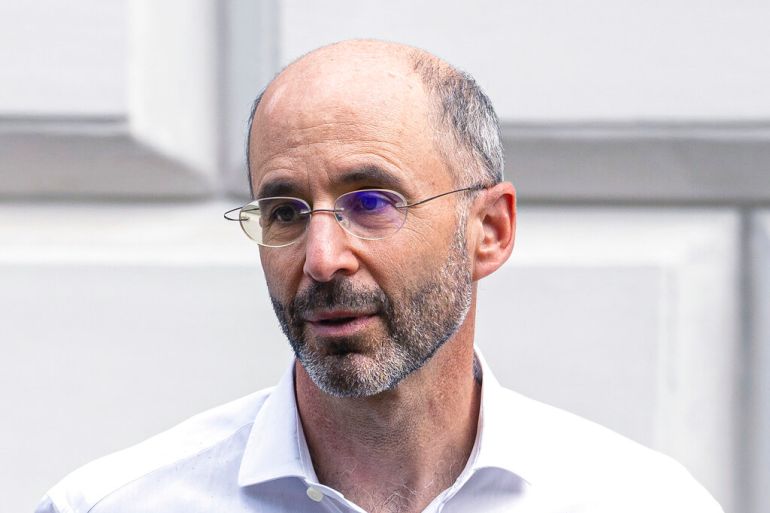US envoy visiting Middle East allies ahead of Iran nuclear talks
Robert Malley will coordinate approach to Iran with UAE, Saudi Arabia, Israel and Bahrain, State Department says.

Robert Malley, the United States’s special envoy for Iran, is travelling to the United Arab Emirates, Israel, Saudi Arabia and Bahrain ahead of crucial nuclear talks with Tehran set for the end of the month.
Malley will hold the “consultations with partners” from November 11 to 20, the State Department said on Thursday, noting the upcoming negotiations in Vienna to revive the Iran nuclear deal, formally known as the Joint Comprehensive Plan of Action (JCPOA).
Keep reading
list of 3 itemsIran deporting thousands of Afghan refugees
US, Israel, UAE, Bahrain launch joint naval drills in Red Sea
“He will coordinate our approaches on a broad range of concerns with Iran, including its destabilizing activities in the region and the upcoming seventh round of talks on a mutual return to full compliance with the JCPOA,” the State Department said in a statement.
Malley’s visit comes as the US military launched joint naval training with Bahrain, Israel and the UAE in a sign of deepening security cooperation.
Israel and the US’s Gulf allies have voiced opposition to the JCPOA, but the Biden administration says it is committed to restoring the deal to put a lid on Iran’s nuclear programme. Still, US officials have pledged to consult with regional partners on Iran policy.
The 2015 accord saw Iran scale back its nuclear programme in exchange for a lifting of international sanctions against its economy. Former President Donald Trump withdrew from the agreement in 2018 and started a “maximum pressure” campaign of sanctions against Tehran.
In response, Iran has escalated its nuclear programme, taking uranium enrichment well beyond the limits set by the JCPOA.
The Vienna negotiations have been on ice since June after the election of conservative Iranian President Ebrahim Raisi, and six rounds of indirect nuclear talks in the Austrian capital so far this year have failed to secure a path back into the agreement.
The Raisi government has made a series of demands for Iran to return to the deal, including the lifting of all US sanctions and guarantees that a future American administration would not nix the deal.
US officials recently warned that time is running out on the window of opportunity to restore the agreement, with Iran gaining nuclear know-how that will be difficult to reverse.
Last week, dozens of progressive US organisations called on the Biden administration to pursue “goodwill gestures” towards Iran to secure a breakthrough in the nuclear talks. Among other measures, they recommended making Iranian assets that are frozen by sanctions available for humanitarian purchases, including COVID-19 vaccines and medical supplies.
“These goodwill gestures will demonstrate US seriousness and sincerity in reversing ‘maximum pressure’ and should be communicated to Iran as such,” the groups, including J Street and the National Iranian American Council (NIAC), said in a letter to Biden.
The US president and his top aides have said over the past weeks that while diplomacy remains the best way to tackle Iran’s nuclear programme, they are preparing “other options” should the Vienna talks fail.
The Biden administration has also pushed to coordinate its position on Iran with European allies who were irked by Trump’s exit from the deal in 2018.
Last month, US National Security Adviser Jake Sullivan said Biden will push for a “united front” with Europe “after the four years of division on the Iran policy in the last administration”.